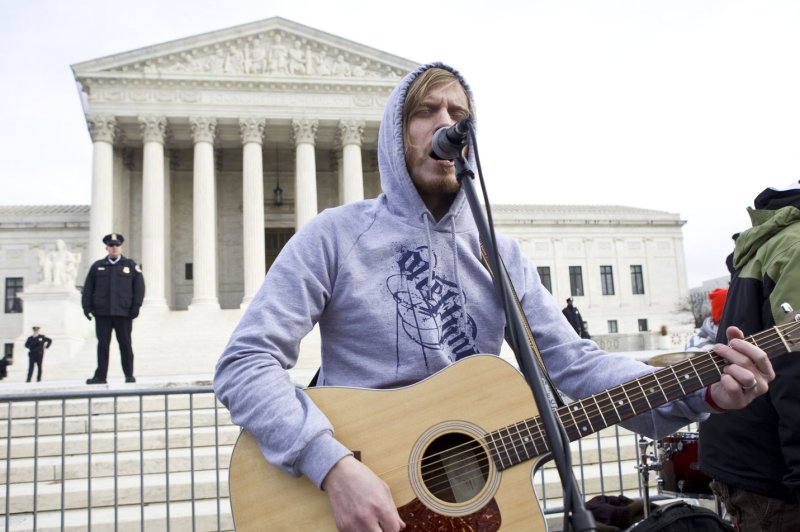A Christian-Rock band plays for Pro-Life protesters in front of the U.S. Supreme Court on the 37th Anniversary of the Roe v Wade Supreme Court ruling on Capitol Hill in Washington on January 22, 2010. UPI/Madeline Marshall |
License Photo
PRINCETON, N.J., July 28 (UPI) -- Voters in the United States who describe themselves as "very religious" are still more likely to gravitate to the Republican Party, a Gallup poll released Monday suggested.
Gallup found some differences among racial and ethnic groups. Black people are overwhelmingly Democratic, and religious ties make no difference in their party leanings. Republicans are a minority among Asians and Hispanics of all degrees of religious observance, but the very religious are somewhat more likely to be Republican.
About 41 percent of U.S. adults attend church at least once a week and say religion is important in their daily lives, Gallup said. Among that group, 49 percent of respondents described themselves as Republican or leaning that way, 11 percent as independents and 36 percent as Democrats or Democratic leaners.
Among very religious whites, 64 percent said they are Republican.
Republican ties drop among the moderately religious with 38 percent describing themselves as party loyalists or leaners. Another 14 percent said they are independents and 44 percent Democrats or leaners.
Only 29 percent of the non-religious are Republicans while 15 percent are independents and 52 percent Democrats.
Gallup said the relationship between degree of religiousness and political persuasion has been "extraordinarily stable" in recent years.
"The underlying explanations for the relationship are complex, and have to do with the historical development of partisan politics in the decades since Jimmy Carter and Ronald Reagan were president, differing positions of the parties on moral and values issues such as abortion and same-sex marriage, and geographic patterns of residency that are simultaneously related to religiousness and partisanship," Frank Newport, Gallup's editor-in-chief, said.
Gallup's findings were based on national tracking polls conducted between January 2008 and June 2014. A total of 67,023 adults were interviewed and the margin of error is 1 percentage point.















